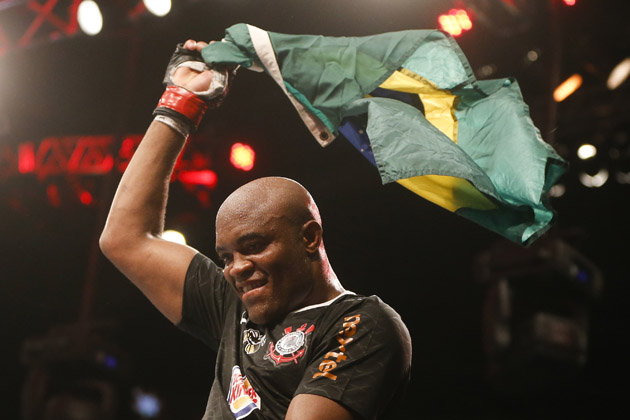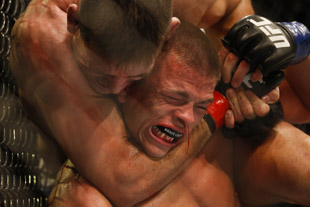BEIJING ? A writer who names himself Don?t Speak, an allusion to the fear of getting into trouble in a one-party state, becomes a top literary official of that state and goes on to win the world?s biggest literary award.
Fiction? A Kafkaesque literary thrust at the bitter, age-old struggle between power and freedom? A story idea of which any author would be proud?
No, because that?s what happened on Thursday, when Mo Yan, the vice chairman of the state-run Chinese Writers? Association, won the Nobel Prize in Literature.
The People?s Republic of China has long coveted a Nobel Prize but was unable to celebrate until now, because they kept being awarded to the wrong people ? free thinkers such as the exiled Gao Xingjian, who took French citizenship (Nobel Prize in Literature, 2000), and the still-jailed Liu Xiaobo (Nobel Peace Prize, 2010). That led to a joke that was circulating here yesterday: ?China has three Nobel Prize winners. The first can?t get in, the second can?t get out, and the third is Mo Yan.? (?Don?t speak? is the meaning of Mr. Mo?s pen name; his given name is Guan Moye.)
Triumphant, still sounding a little angry, the online version of the state-run People?s Daily said on Thursday, according to Reuters: ?This is the first Chinese writer who has won the Nobel Prize for Literature. Chinese writers have waited too long, the Chinese people have waited too long.?
More lightheartedly, The Beijing News dubbed this year?s prize the ?Mobel.?
But if this year is proving a high point for Chinese literature of the Communist era, the Frankfurt Book Fair of October 2009, where China was the guest of honor, was a low point.
Convulsed by public arguments over censorship ? the official delegation, which included Mr. Mo, boycotted events where dissident Chinese writers appeared ? the event raised crucial questions about writing and power, including this almost philosophic one: Can a writer in a one-party state that practices massive censorship ever be truly free to create? Or do censorship and compromise trap the writer?s mind in ways he or she may not be aware of?
Mr. Mo has been praised by many at home and abroad for his wide-ranging, earthy writing, which in recent years has not been afraid to probe even such sensitive matters as forced abortions under China?s one-child policy. But was he, even then, under a kind of spell?
At Frankfurt, where I was present, it fell to Mr. Mo to deliver the opening writer?s speech to an audience that included Xi Jinping, the Chinese vice president who is tapped to become the country?s next top leader, and Angela Merkel, the German chancellor, who publicly called on China to respect freedom of expression.
His performance was curiously dull. True, he said that a writer should transcend politics. But these excerpts from my notes at the time (edited somewhat for clarity and concision) convey the flat mood:
?Mo Yan?s talk ? the first half is dreary and wooden and the Chinese journalists around me whisper that he didn?t write it, it was written by the writers? association. Then suddenly his voice brightens and he looks his audience in the eye, as if he has added his own bit. He talks about misperceptions of Germans in his hometown, and it?s quite funny, though he is careful to cause no waves. Germans in his home province of Shandong had the reputation of having no kneecaps and once they sat down they couldn?t get up. Oh, and they were believed to have forked tongues. It?s important that we talk, in order to remove these kinds of misconceptions.?
But, my notes continue, ?Over all, it was a puzzling speech, a letdown. It?s not Orhan Pamuk?s speech, which was the most talked-about event of last year?s fair.? (In his opening talk the previous year, Mr. Pamuk had blasted the Turkish government for curtailing freedom of expression.)
?It?s a careful speech ? a real disappointment, in terms of what a writer can do here. Lightweight,? my notes run.
Later that year, in an interview with China Newsweek magazine (which can be read here, in Chinese, on the China News site), Mr. Mo responded to critics who said he had toed the state line too closely at Frankfurt, where he walked out of a literary symposium, along with Chinese officials, to protest the presence of two dissident writers, Dai Qing and Bei Ling, creating a storm of controversy that would dog the fair: ?I had no choice,? he said.
?A lot of people are now saying about me, ?Mo Yan is a state writer.? It?s true, insofar as like the authors Yu Hua and Su Tong, I get a salary? from the ?Ministry of Culture, and get my social and health insurance from them too,? he said.
?That?s the reality in China. Overseas, people all have their own insurance, but without a position, I can?t afford to get sick in China,? he said.
After his opening speech at Frankfurt, Mr. Mo seemed to disappear. My notes record: ?Things went downhill from there. Mo skipped his first public reading, where he had been due to inaugurate a new stage. I arrived five minutes early to find long faces at the stand of Horlemann Verlag, German publisher of ?Life and Death Are Wearing Me Out,? ? Mr. Mo?s new book.
?Fifteen minutes ago, according to a tight-lipped man with a company name tag on his lapel, someone rang to cancel. He didn?t identify himself, but said he was with the Chinese delegation. No reason given. A slight? The man shrugged. His face said it all. Later, Mo would skip a major event at the Blue Sofa, hosted by German state television broadcaster ZDF,? my notes continue.
According to literary agents and publishers, Mr. Mo was irritated by the endless political questions and, along with many delegation members, deliberately avoided events. Mr. Don?t Speak became Mr. No Show.
After the fair, still seeking answers, I traveled to Paris to interview Gao Xingjian, the 2000 Nobel laureate.
In an interview in his apartment, Mr. Gao, without referring to Mr. Mo, said he believed writers living under conditions of censorship were inevitably crimped by it. In his view, a writer needed ?total independence? to create literature that would be ?eternal.?
?What is the relation between officials and literature? Nothing,? said Mr. Gao.
?They have nothing to do with literature, especially with literature. And this was an official event,? he said, referring to the fair.
?Where can officials and literature be connected? Nowhere,? continued Mr. Gao.
?And if they are, then it?s merely official literature, and that?s a really laughable thing. So literature shouldn?t be organized by officials. If it is it?ll certainly become ridiculous. What will happen in that situation is that the officials will foist their politics on literature. That?s for certain. And in China, to this day, officials have always meddled in literature. This isn?t a new phenomenon. It?s always been like that. It was like that when I was still in China. That?s why I left,? he said.
Speaking Thursday, Peter Englund of the Swedish Academy, which awards the Nobel for literature, said that Mr. Mo was not a political dissident, adding: ?I would say he is more a critic of the system, sitting within the system.?
The question is, then: Can great, lasting literature come from there? The Nobel committee thinks so. Do you?
Source: http://rendezvous.blogs.nytimes.com/2012/10/12/the-writer-the-state-and-the-nobel/
super bowl commercials 2012 mia amar e stoudemire m.i.a. adrianne curry hoekstra best superbowl commercials 2012

 As expected, Glover Teixeira dominated Fabio Maldonado on the way to an early stoppage win. But what wasn't expected was how Maldonado stood in for 10 minutes of straight punishment.
As expected, Glover Teixeira dominated Fabio Maldonado on the way to an early stoppage win. But what wasn't expected was how Maldonado stood in for 10 minutes of straight punishment. "Normally I'm the young lion coming in, but it's a different feeling getting in the gym, knowing someone like Wagner Prado is coming to knock your block off," Davis said after the fight.
"Normally I'm the young lion coming in, but it's a different feeling getting in the gym, knowing someone like Wagner Prado is coming to knock your block off," Davis said after the fight. My husband received a call the other day from the secretary at the cemetery where his parents are buried.? There was some confusion as to who was in which space and which empty plots were being held for whom.? Now if this seems odd, I?ll give you a little hint?everyone is named Matthew, John, or Peter!? Okay maybe not everyone, but a large portion of the males in this family have one of those three names.? Back in the late 1800?s and early 1900?s it was very common to give the first born son the name of his grandfather.? When subsequent sons came along, they usually got one of the other two.? This got us talking about family trees.
My husband received a call the other day from the secretary at the cemetery where his parents are buried.? There was some confusion as to who was in which space and which empty plots were being held for whom.? Now if this seems odd, I?ll give you a little hint?everyone is named Matthew, John, or Peter!? Okay maybe not everyone, but a large portion of the males in this family have one of those three names.? Back in the late 1800?s and early 1900?s it was very common to give the first born son the name of his grandfather.? When subsequent sons came along, they usually got one of the other two.? This got us talking about family trees. Accenture?s Consulting workforce is involved in business consulting, process design work and the application of technologies to business. A career in Consulting is varied and stimulating because each project presents a new challenge and will give you exposure to new clients, business issues, technologies and people. We need people who are able to challenge conventional thought, offer unique perspectives and conceive more innovative solutions for our clients.
Accenture?s Consulting workforce is involved in business consulting, process design work and the application of technologies to business. A career in Consulting is varied and stimulating because each project presents a new challenge and will give you exposure to new clients, business issues, technologies and people. We need people who are able to challenge conventional thought, offer unique perspectives and conceive more innovative solutions for our clients. BY CHRISTOPHER YOUNG
BY CHRISTOPHER YOUNG